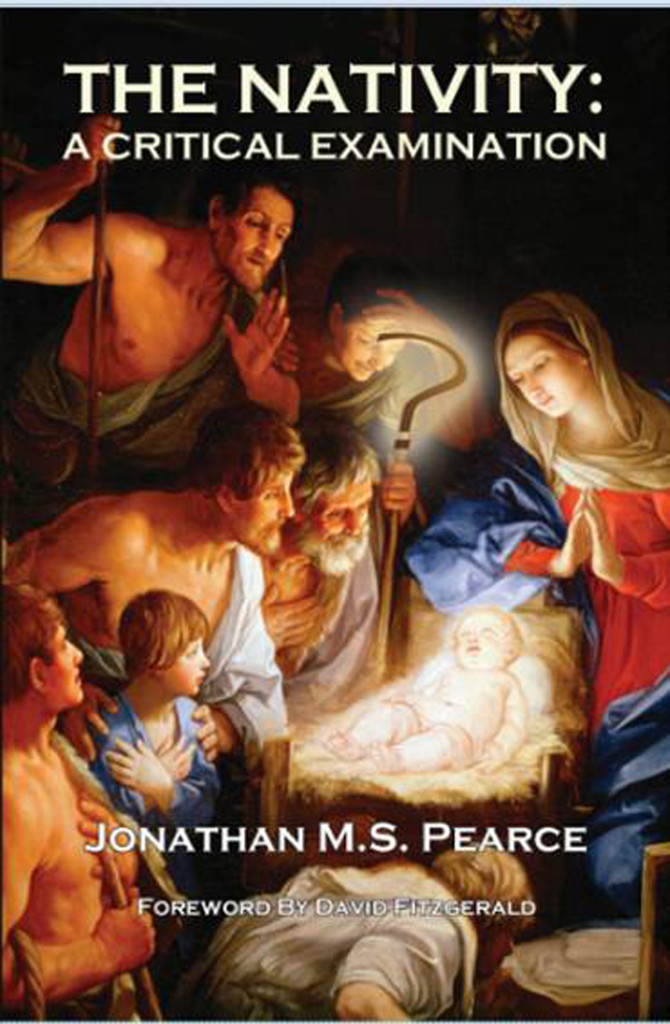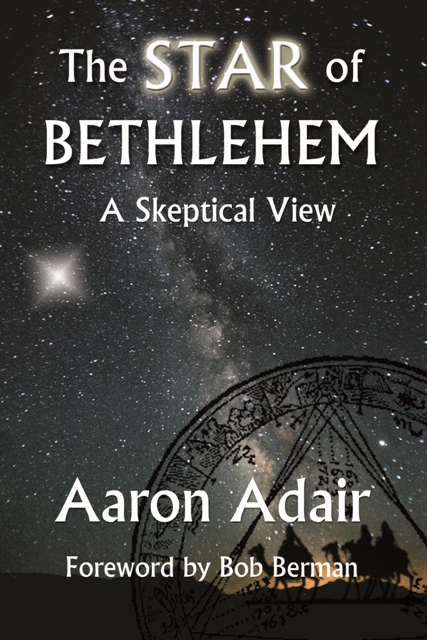A few days ago I responded to Jason Engwer of Triablogue as he critiqued some posts I had made, and my book, on the nativity. I responded here. This post is the second in the series. It might go on for some time as he has responded here to my first response.
I suggest you read the first post if you have not to get a sense of the context and what we are talking about.
I approvingly reposted this comment from epicurus, which starts Engwer’s further points off:
If they were really that troubled about it, a pretty big chunk of the population of the city would have followed the wise men down the road to Bethlehem to see their infant king! They would have seen the star. The lineup to the house/manger/inn would have been miles long. If Bethlehem is 6 miles or so from Jerusalem, it would have been a round trip done in a day, except of course for the time spent in the line of tens of thousands or hundreds of thousands lined up to see the infant. Then, they would have over thrown Herod if he actually tried to kill the infants under two.
Engwer continues:
How does the term “troubled” in Matthew 2:3 suggest the sort of devotion to the child the commenter refers to? It doesn’t. To the contrary, it’s doubtful that all of Jerusalem believed that the Messiah had been born, for reasons I’ve explained above. Rather, all of Jerusalem was troubled by the potential reaction of Herod (and perhaps the later reaction of the Romans). It’s perverse to criticize Matthew for not depicting the Jerusalemites as acting in accordance with their devotion to Jesus when Matthew never suggested that they were devoted to begin with.
The discussions among Herod, the religious leaders, and the magi wouldn’t have been witnessed by all of Jerusalem. Matthew doesn’t tell us how much the people of the city knew about what was going on. Some of what happened was of a highly private nature (2:7-8).
OK, so I think Engwer gets this wrong here. Let’s refer to the original text:
When Herod the king heard this, he was troubled, and all Jerusalem with him. Gathering together all the chief priests and scribes of the people, he inquired of them where the Messiah was to be born. They said to him, “In Bethlehem of Judea; for this is what has been written by the prophet.
Jerusalem was troubled with Herod. Why? Well, Matthew continues in the next sentence that Herod gathered the scribes to inquire where the Messiah was to be born. It seems there is causal connection to being troubled and the Messiah being born. This, supposedly (and Christians of course agree with this) is a prophecy which predicts the birth of the Messiah. Herod asks where this prophecy predicts the birth. Now, if this was a false prophecy, this would have been announced by priests and Herod alike. But no, this is announced and believed, by implication here. The priests even back this up with recourse to the OT. There is no wriggle room from a simple reading of the text to make Engwer’s interpretation probable. It is most ad hoc. To think otherwise is to call all of Jerusalem heretics for not believing an OT prophecy which is proclaimed by the scribes and chief priests, and by Herod himself, it seems.
On Engwer’s last point about secrecy, Matthew continues in the next sentence after the prophecy:
Then Herod secretly called the magi and determined from them the exact time the star appeared.
The language states that “then” there was secrecy. In other words, secrecy was not on the agenda beforehand.
Back to Engwer:
If the people of Jerusalem didn’t think the Messiah had actually been born, and they were troubled by Herod’s potential reaction to what was happening, why would they follow the magi to Bethlehem? That would make a bad situation worse. What would Herod think of people who were so interested in the newborn child that they wanted to follow the magi? And how would the Jerusalemites know that the magi were going to Bethlehem? If they knew what the magi had been saying in 2:2, it doesn’t follow that they were aware of the later developments that led the magi to try to find the child in Bethlehem instead. Unless people knew what the magi had been discussing with Herod, they’d probably assume that whatever child the magi were looking for was in Jerusalem if the child even existed, since that’s where the magi first went and asked about the child. Why would the Jerusalemites conclude that the magi were leaving to go to another city to find the child?
And here I think Engwer actually illustrates how Matthew’s account doesn’t add up. He actually does a little of my work for me here. We know Jerusalem is troubled, in some way or another at least. Now, if the star is naturalistic, then the whole world could have seen it, and could have interpreted its indicative nature. Why only three or so Eastern Magi did is bizarre. That no one from Jerusalem follows the star with these people is odd. Even if the Jerusalemites were unanimously skeptical (imagine the probability of THAT!) as Engwer claims, that not a single person ventured three hours south to verify or falsify the claims of the chief priests and scribes is utterly intelligible. So, really, the star must have been supernatural and only appeared to the vision of the Magi. Nothing else is particularly coherent.
Engwer seems to think that the prophecy proclaiming Bethlehem as the place of birth was kept secret; that all the Jerusalemites were told about an impending Messianic birth, were troubled, and said “meh” whilst all of the chief priests and scribes were able to keep it secret, even though Matthew states none of this, and implies that the priests, scribes and even Herod (publicly) admitted the truth of this proclamation! I think Engwer’s hypothesis is really very far-fetched.
Finally, Engwer states:
The commenter at Pearce’s blog goes on to refer to “a big star that would have been visible to all resting over a house”. The star seems to have been an object relatively close to the earth’s surface, which appeared and disappeared, and was primarily intended to guide the magi, not to be visible or seen by “all”. I’ve written about the nature of the star here.
And in that link he says:
It seems that Matthew’s star was much closer to the earth’s surface than what we’d typically call a “star” today (suggested by the ignorance of the star among sources other than the magi; suggested also by the star’s ability in verse 9 to lead the magi to a location smaller than the city of Bethlehem). Apparently, it appeared and disappeared (suggested by the references in verses 2 and 9 to the magi’s having seen the star earlier without references to its presence again prior to verse 9; suggested also by the magi’s joy upon seeing the star again in verse 10).
I suggest reading Aaron Adair’s superlative The Star of Bethlehem: A Skeptical View for lots more skeptical  information on this topic. But, as I mentioned above and before, the star must have been able to indicate a house and thus fairly obvious to the Magi (if anyone else other than them could see it). If it was this supernatural star that only they could see, then there is little point talking about it, or anything else for that matter, because this approach indicates that God can do anything ad hoc to get around any problem. A rather unfalsifiable approach.
information on this topic. But, as I mentioned above and before, the star must have been able to indicate a house and thus fairly obvious to the Magi (if anyone else other than them could see it). If it was this supernatural star that only they could see, then there is little point talking about it, or anything else for that matter, because this approach indicates that God can do anything ad hoc to get around any problem. A rather unfalsifiable approach.
But if it is visible to anyone else, then the massive plethora of problems this raises needs to be answered by Engwer. Absence of evidence IS evidence of absence when it is expected.
And there ends Part 2. I may write Part 3 in reply to Engwer’s further response. I think all of my points remain untouched! Am I right in this conclusion?
